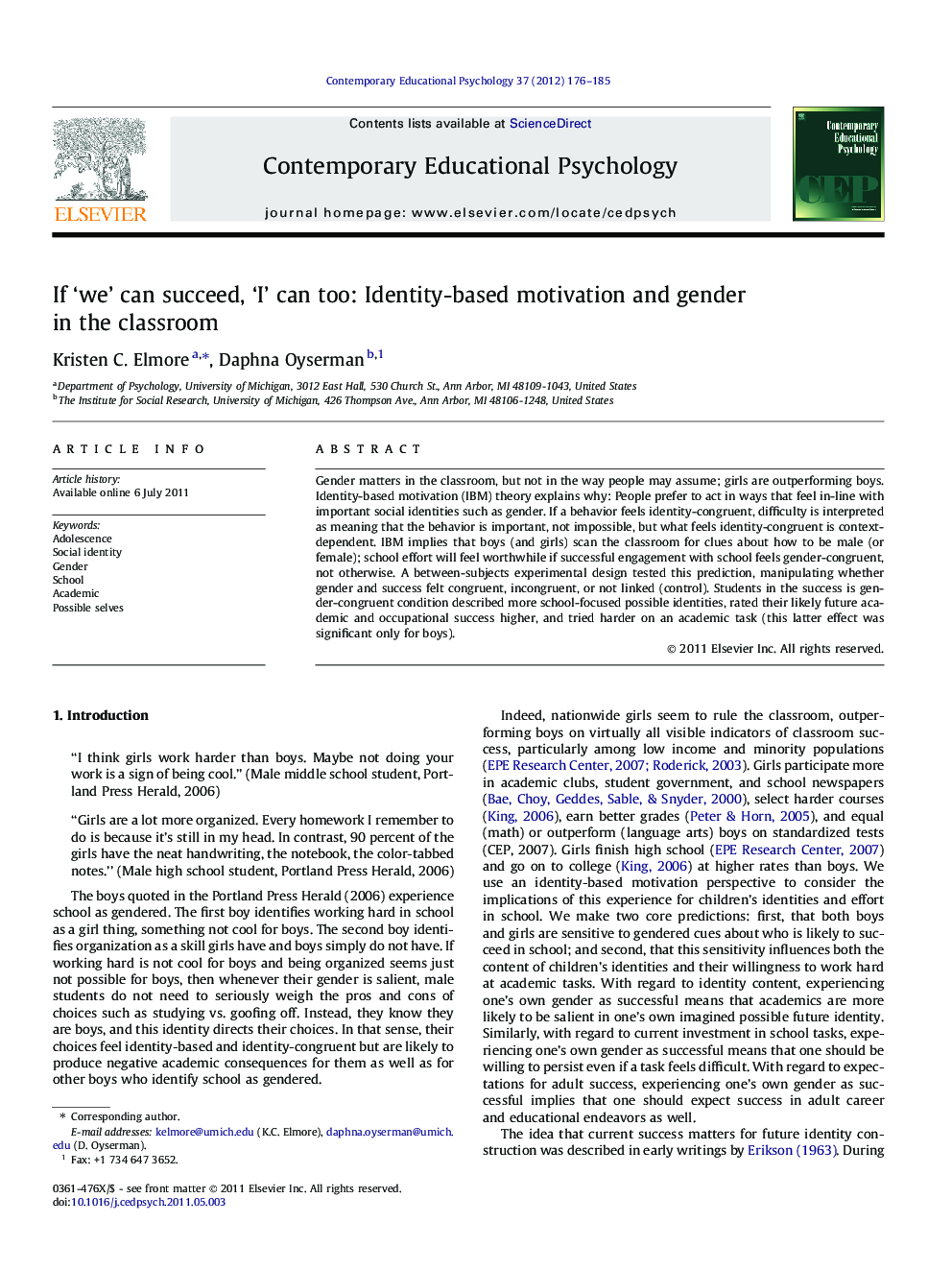| Article ID | Journal | Published Year | Pages | File Type |
|---|---|---|---|---|
| 352656 | Contemporary Educational Psychology | 2012 | 10 Pages |
Gender matters in the classroom, but not in the way people may assume; girls are outperforming boys. Identity-based motivation (IBM) theory explains why: People prefer to act in ways that feel in-line with important social identities such as gender. If a behavior feels identity-congruent, difficulty is interpreted as meaning that the behavior is important, not impossible, but what feels identity-congruent is context-dependent. IBM implies that boys (and girls) scan the classroom for clues about how to be male (or female); school effort will feel worthwhile if successful engagement with school feels gender-congruent, not otherwise. A between-subjects experimental design tested this prediction, manipulating whether gender and success felt congruent, incongruent, or not linked (control). Students in the success is gender-congruent condition described more school-focused possible identities, rated their likely future academic and occupational success higher, and tried harder on an academic task (this latter effect was significant only for boys).
► Gender is psychologically salient and part of children’s identity from an early age. ► Though it feels stable, what it means to be a boy or girl in school is malleable. ► Success feels possible and effort improves if context implies one’s gender succeeds.
